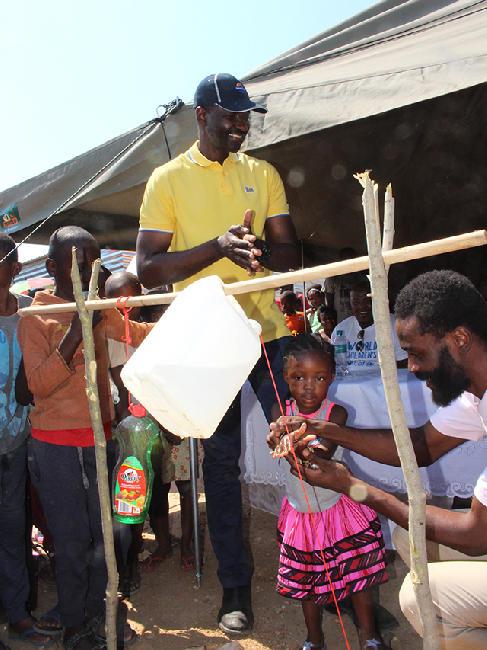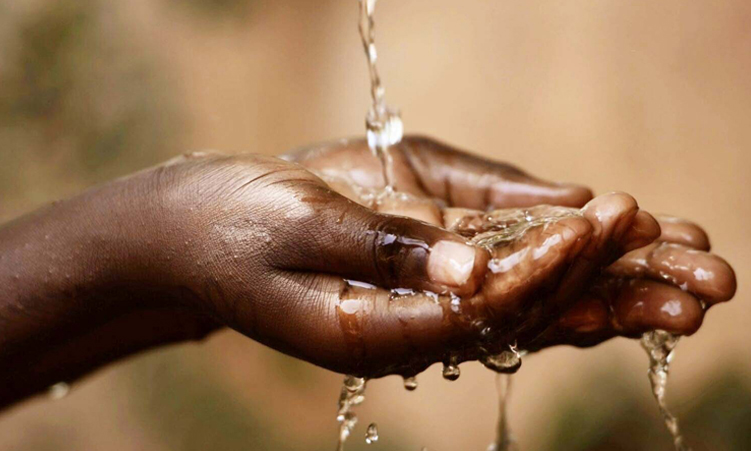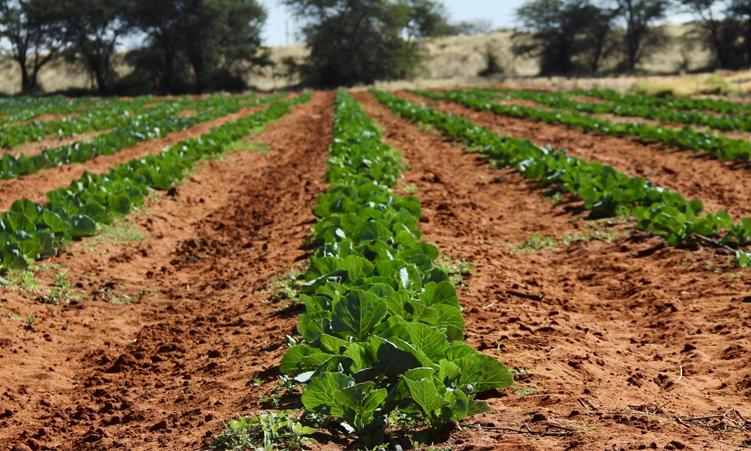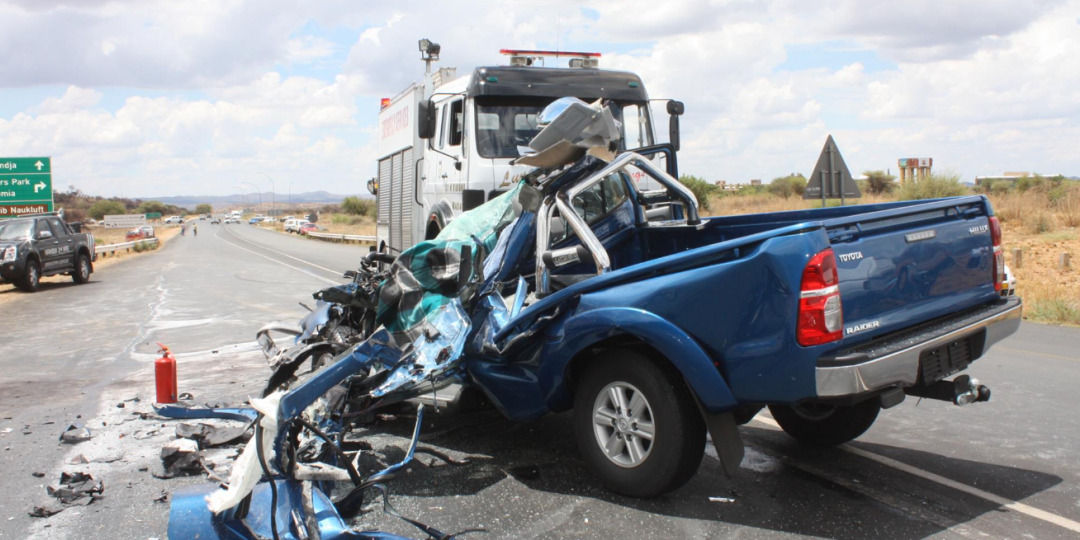RUTH KAMWISOME frustrated Havana informal settlement residents in Windhoek implored health authorities to fix their dysfunctional toilets, instead of giving them “cheap talk” about health and sanitation.
The residents made these remarks in response to the launch of ‘Operation Sanitiser’ by health adviser to the presidency, Bernhard Haufiku, as part of the national response to the hepatitis E outbreak on Saturday.
The campaign is aimed at fitting the gaps identified in the initial response due to poor coordination amongst stakeholders. During the campaign launch, residents were shown an easy and fast way to wash their hands in order to prevent diseases.
“We have toilets that are not flushing and they are full, very full. Yet, we continue to use those toilets. They (City of Windhoek) did not even come to collect the bins for maybe two years now. How can we stop hepatitis E if things are like this?” one resident asked.
“We have a problem, we understand when these people are speaking, but they do nothing”, she added. Another resident echoed similar sentiments in the background, shouting “They are just talking here, nothing changes.”
Haufiku said the relaunch was necessary as some people were not attending meetings, and reports were not being submitted on time during the initial campaign.
He also cited additional setbacks of not having a physical operational structure and weak community engagement, amongst others.
The former health minister, who described hepatitis E as “less of a medical problem and more of a socio-economic syndrome”, noted that new measures had been put in place, including a multi-stakeholder and multi-partnership national response coordinating committee; an emergency operation centre; a resource mobilisation committee; a monitoring and evaluation committee; and field epidemiologists, who will be deployed to affected areas.
The epidemiologists will comprise 24 recent graduates.
“Havana and Goreangab are still highly vulnerable because sanitation in these places remains extremely poor. There are very few toilets in Havana and Goreangab, and many of these toilets are not working,” he acknowledged. He added that since the outbreak of the disease in 2017, where 620 hepatitis E cases were confirmed, many more cases have been reported.
The Khomas region leads with 177 cases, followed by Erongo with 156, and Omusati with 102. Oshana has at least 100 reported cases. Haufiku said 17 pregnant women out of 41 people died after contracting the infection.
Speaking of realistic measures to aid in combating the deadly outbreak which has continued unabated, he appealed for water to be made accessible to everyone, disapproving the use of water tokens, which cost N$320 per month in areas like Saam Staan at Usakos, where the majority is unemployed.
He also urged members to implement community sanitation since it was not enough to have portable water without basic hygiene.
In a speech read on his behalf by a City of Windhoek councillor Ananias Niizimba, mayor Muesee Kazapua said notable improvements have been made by the municipality, including health education through social mobilisation, a 7 km water pipe extension in Goreangab and Havana, and the repairing of toilets. However, the mayor expressed disappointment over the implementation of the response plan due to a lack of ownership, which has resulted in the vandalism of facilities.
In response to the concerns of the community members, Moses //Garoëb constituency councillor Martin David said” “It’s not only talking, we deliver”, pointing out that through his own initiative, he has constructed four toilets in his constituency. David also encouraged community members to clean up their surroundings frequently.
Stay informed with The Namibian – your source for credible journalism. Get in-depth reporting and opinions for
only N$85 a month. Invest in journalism, invest in democracy –
Subscribe Now!










